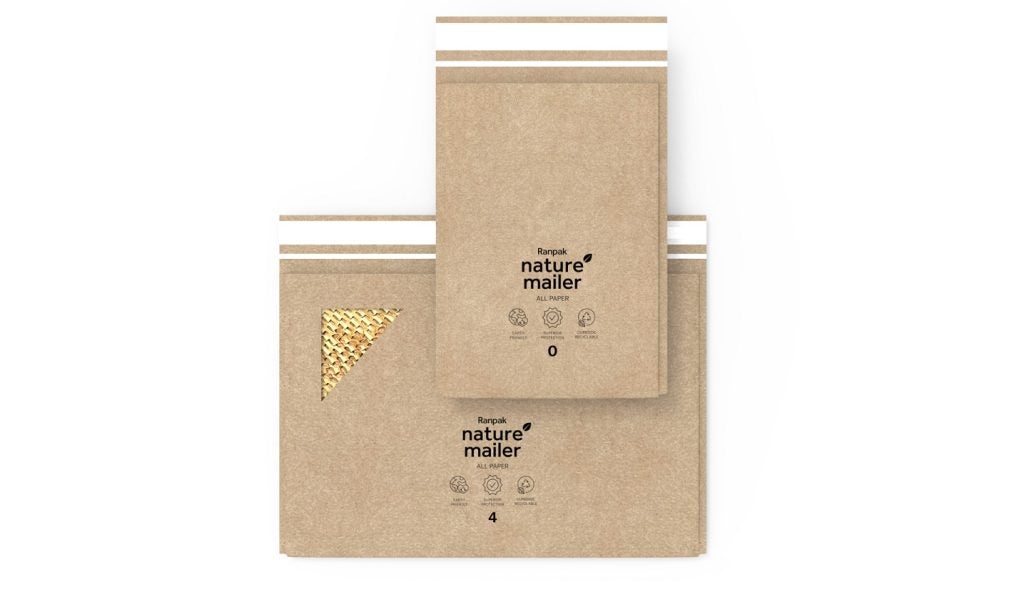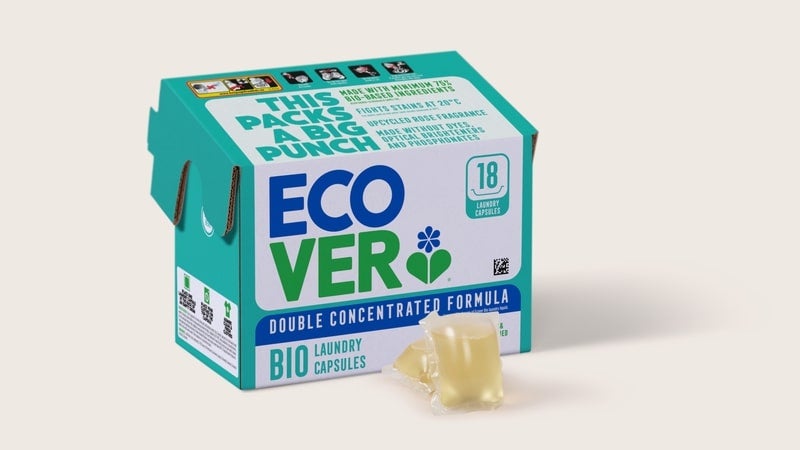
Now and in the future, environmental concerns remain a top priority for the packaging sector. The health and financial scares of 2009 may have recently impacted the actions of packaging suppliers but fundamentally businesses will continue to be conducted according to environmental guidelines.
It is the environment that is shaping legislation and dictating consumer buying habits and the packaging industry will be increasingly forced to respond accordingly. Put simply, those who demonstrate an ability to adapt are more likely to succeed.
A dictating factor in this equation will be government-funded green packaging projects such as the Waste and Resources Action Programme (WRAP) in the UK. The non-profit department was established in 2000 to work with local authorities, businesses and households to prevent waste, increase recycling and develop markets for recycled and sustainable products.
Working with the likes of ASDA, Crown Paints, STFI-Packforsk and CEVA Logistics, WRAP is exploring how reusable and refillable systems can help the retail chain reduce packaging to spark what it has labelled a “reusables revolution”.
The organisation has in particular identified self-dispensing technology as a key means of moving forward. It instigated a five-month trial of the new technology, which enables consumers to purchase concentrated fabric conditioner in reusable pouches that can be refilled up to ten times on automated machines.
See Also:
According to a WRAP spokesperson: “The move to refillable and reusable systems could enable packagers to provide value added products and services to their customers by helping them to achieve the substantial carbon reductions targets that the UK has set for 2020 and beyond."
How well do you really know your competitors?
Access the most comprehensive Company Profiles on the market, powered by GlobalData. Save hours of research. Gain competitive edge.

Thank you!
Your download email will arrive shortly
Not ready to buy yet? Download a free sample
We are confident about the unique quality of our Company Profiles. However, we want you to make the most beneficial decision for your business, so we offer a free sample that you can download by submitting the below form
By GlobalDataThe five-month trial was aimed at assessing consumer reaction according to propensity to use, refill frequency, loyalty and motivation. All the findings of the research will be made available next year.
"Comparing the benefits and disadvantages of single use and reusable packaging formats is a fundamental part of the study, with the aim of helping companies to make informed choices," a WRAP spokesperson says.
An industrial approach
Supporting the drive of organisations such as WRAP are industry associations, which are becoming actively involved with reducing the impact of packaging on the environment. Often this comes in the form of lobbying governments on behalf of their members to change or introduce legislation.
A good example of such action can be found in Eastern Europe, where Homo Ecos has successfully been representing the Latvian bioplastics industry. The trade association has initiated a cabinet ordinance for a legal definition for biodegradable plastics, which it believes will help raise industry standards.
A tax on natural resources in Latvia grants packaging made of biodegradable plastics a significantly reduced tariff compared with conventional plastics. The ordinance makes certification and labelling mandatory for bioplastics products if they wish to profit from the lower tariff.
Homo Ecos spokesperson Andrejs Viks says the organisation has been looking towards Europe for inspiration. "At the moment we are strongly committed to the translation of the European standards for compostable bioplastics EN 13432 and 14995 into Latvian," Viks says.
The European Aluminium Association is another organisation that has made considerable environmental strides in recent years. The organisation has long championed beverage can recycling but is now also focusing attention and investment on the collection of foil trays for ready-made meals.
Although social consciousness has played a part in its decision to expand its sources of recycled products, the association says that for its members it also makes sound business sense. It has found recycled materials use 95% of the energy of primary metal, lowering energy consumption bills.
A different approach can be found from the Expanded Polystyrene (EPS) Packaging Group, which recently started a unique recycling project in Guernsey. The island, which is located just off the south coast of England, was faced with the problem of what to do with the island’s EPS after it had become clear that using it for landfill was no longer a viable option.
The local authority eventually decided to invest in a machine that compacts the material by 90% which is then sold onto a Welsh recycling company called Robust. In a novel twist, Robust turns the EPS into substitute hardwood briquettes, which Guernsey buys back and is using for outdoor furniture such as park benches.
Unlike the aluminium sector, there is no immediate financial incentive for members of the EPS Packaging Group to promote recycling other than to demonstrate their eco-friendliness to their customers who, it seems, will increasingly have the power to make buying decisions based on a product’s carbon footprint.
This is where the important role of the Carbon Trust’s Carbon Reduction label scheme comes into play. The Carbon Trust was established by the UK government to help businesses and public organisations reduce their carbon dioxide emissions namely through improving energy efficiency and developing commercial low carbon technology. In 2007, the trust launched its labelling scheme, which measures carbon emissions at every step of the supply chain and now appears on more than 2,500 UK consumer products.
The growth in the use of the Carbon Reduction Label demonstrates that, despite being pushed down the news agenda by other events, the environment continues to have an enormous impact on the packaging industry.
Parts of this article originally appeared on our sister title Packaging Today: http://www.packagingtoday.co.uk/story.asp?sectioncode=42&storycode=60224&c=1





